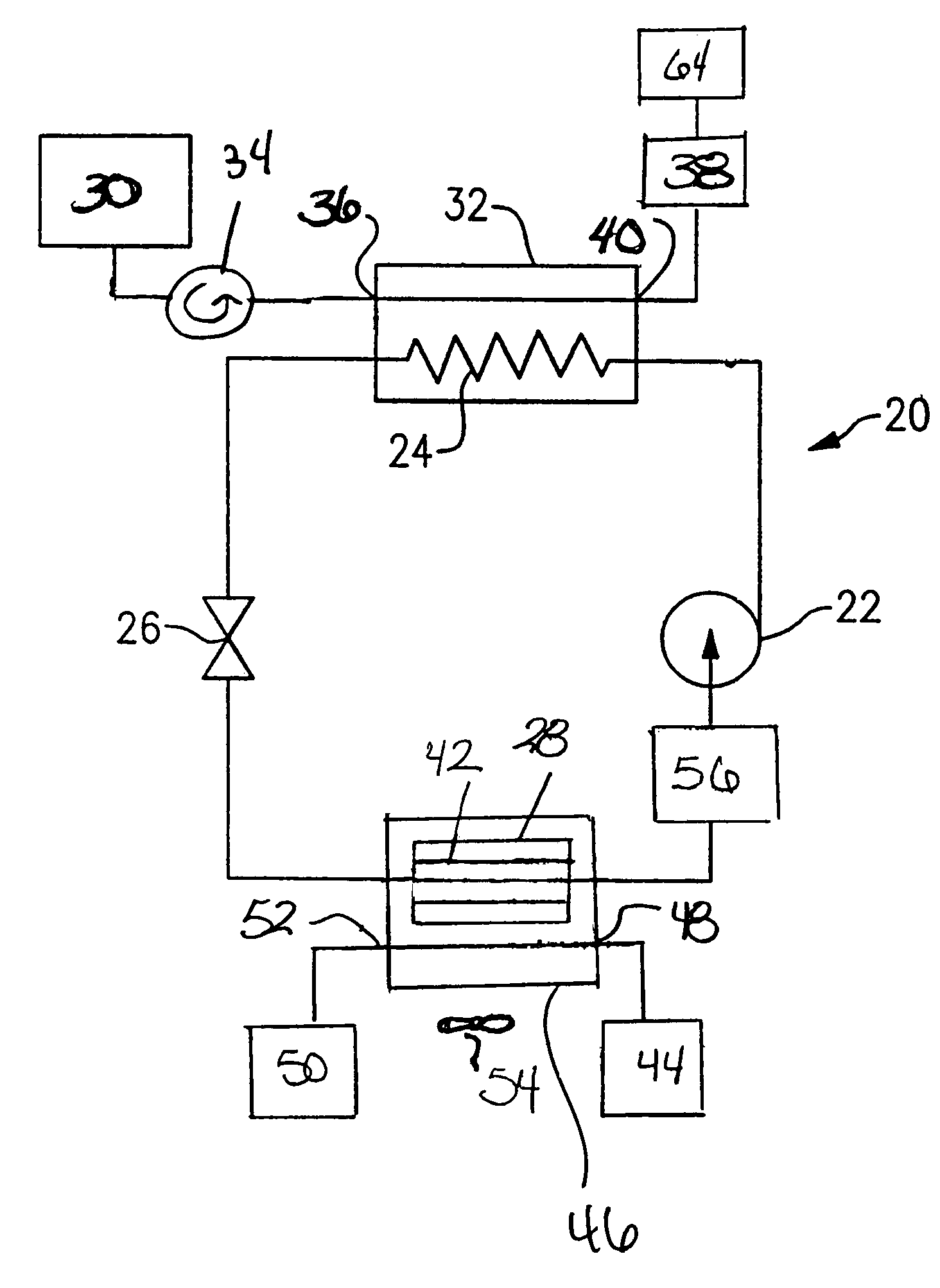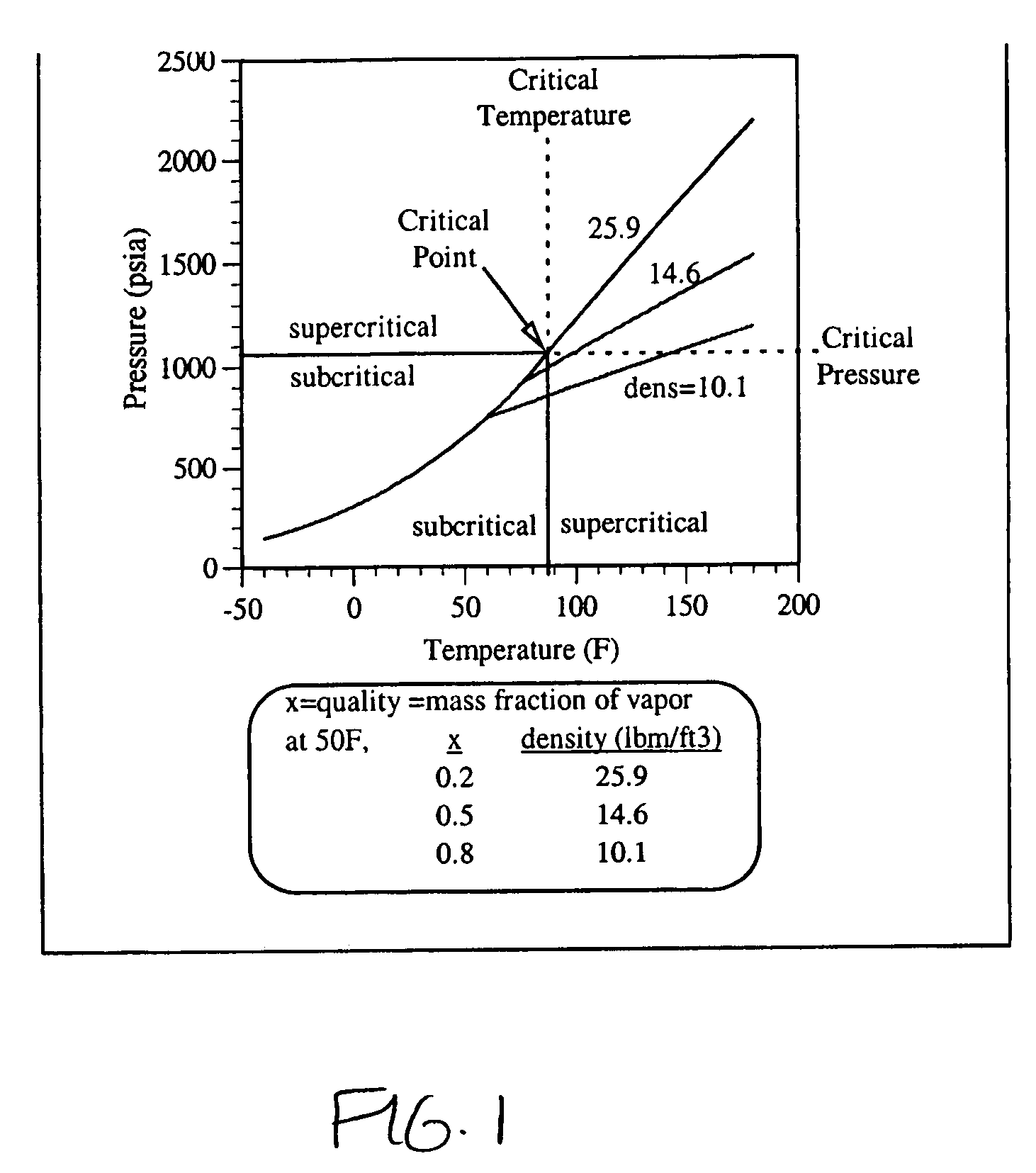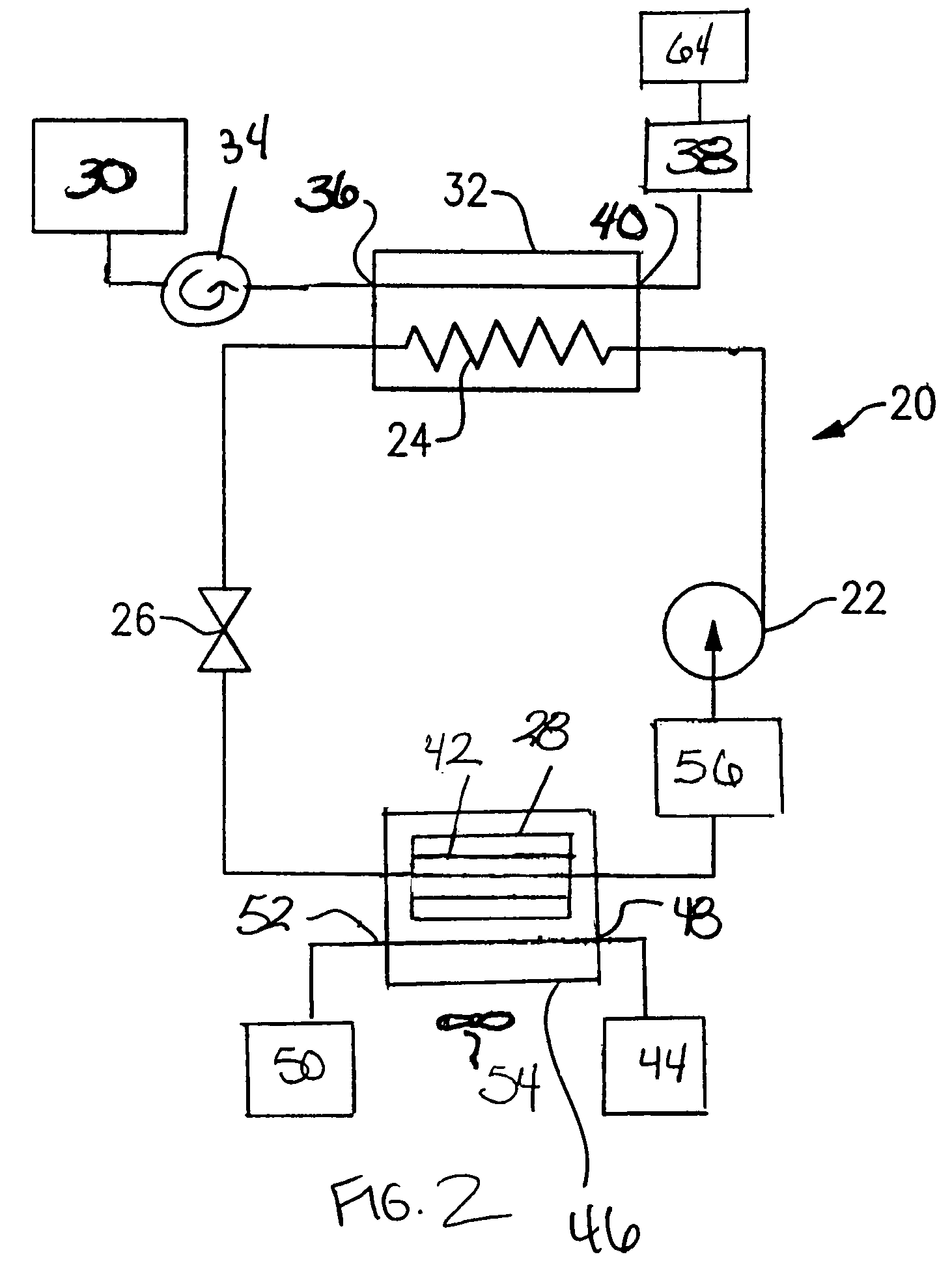Vapor compression systems using an accumulator to prevent over-pressurization
a technology of accumulator and vapor compression system, which is applied in the direction of gas cycle refrigeration machine, refrigeration machine, lighting and heating apparatus, etc., can solve the problems of accumulator not being sized to determine the maximum pressure, damage to the components, and inability to prevent over-pressurization of the system, so as to prevent over-pressurization
- Summary
- Abstract
- Description
- Claims
- Application Information
AI Technical Summary
Benefits of technology
Problems solved by technology
Method used
Image
Examples
Embodiment Construction
[0015]FIG. 2 illustrates an example vapor compression system 20 including a compressor 22, a heat rejecting heat exchanger (a gas cooler in transcritical cycles) 24, an expansion device 26, and a heat accepting heat exchanger (an evaporator) 28. Refrigerant circulates through the closed circuit system 20 through refrigerant lines.
[0016]In one example, carbon dioxide is used as the refrigerant. Because carbon dioxide has a low critical point, systems utilizing carbon dioxide as a refrigerant usually run transcritically. Although carbon dioxide is described, other refrigerants may be used.
[0017]The refrigerant exits the compressor 22 at a high pressure and a high enthalpy. The refrigerant then flows through the heat rejecting heat exchanger 24 at a high pressure. A fluid medium 30, such as water or air, flows through a heat sink 32 of the heat rejecting heat exchanger 24 and exchanges heat with the refrigerant flowing through the heat rejecting heat exchanger 24. In the heat rejecting...
PUM
| Property | Measurement | Unit |
|---|---|---|
| storage pressure | aaaaa | aaaaa |
| storage pressure | aaaaa | aaaaa |
| critical point | aaaaa | aaaaa |
Abstract
Description
Claims
Application Information
 Login to View More
Login to View More - R&D
- Intellectual Property
- Life Sciences
- Materials
- Tech Scout
- Unparalleled Data Quality
- Higher Quality Content
- 60% Fewer Hallucinations
Browse by: Latest US Patents, China's latest patents, Technical Efficacy Thesaurus, Application Domain, Technology Topic, Popular Technical Reports.
© 2025 PatSnap. All rights reserved.Legal|Privacy policy|Modern Slavery Act Transparency Statement|Sitemap|About US| Contact US: help@patsnap.com



